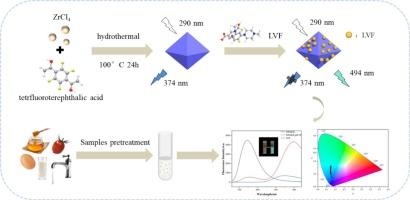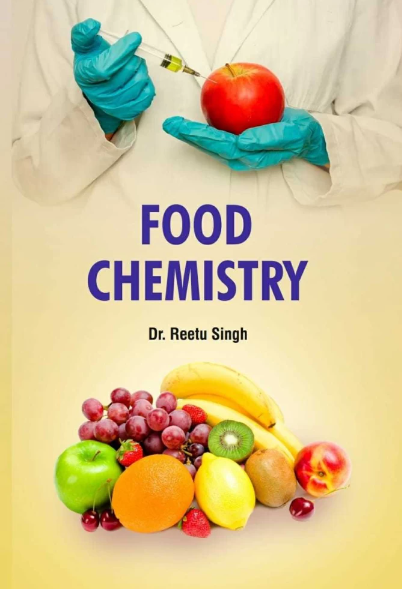Development of a MOF-based dual-channel levofloxacin probe and its application in the detection of food and beverage
IF 8.5
1区 农林科学
Q1 CHEMISTRY, APPLIED
引用次数: 0
Abstract
Food safety issues are becoming increasingly prominent, raising public concern. Antibiotic pollutants, as a unique category, act like a double-edged sword. On one hand, they provide precise treatment for related diseases, but on the other hand, their excessive use or improper handling can lead to environmental contamination or entry into the biological chain. This makes it easy for living organisms to come into contact with and ingest these pollutants, leading to serious consequences. Among these antibiotics, Levofloxacin (LVF), a broad-spectrum antibacterial agent, effectively treats various bacterial infections but also causes severe problems due to its misuse. Therefore, developing a simple, fast, and efficient probe for detecting LVF is crucial for environmental protection and human safety. In this study, a novel UiO-66-F4 fluorescent probe was synthesized. This probe demonstrated dual-channel detection of LVF through its inner filter effect (IFE) and chemical interactions, resulting in a visible color change from colorless to green. It exhibits good linear ranges at the fluorescence peaks of 494 nm (30–68 μM), with a detection limit of 0.1 μM. Based on its excellent detection performance, the probe was further applied for the quantitative determination of LVF in different types of food and beverages samples, yielding satisfactory results with recovery rates ranging from 93.4 % to 114.6 %. This probe offers a reliable means for the detection and evaluation of trace amounts of LVF in food.

基于 MOF 的双通道左氧氟沙星探针的开发及其在食品和饮料检测中的应用
食品安全问题日益突出,引起了公众的关注。抗生素污染物作为一个独特的类别,就像一把双刃剑。一方面,它们可以精确治疗相关疾病,但另一方面,过度使用或处理不当会导致环境污染或进入生物链。这使得生物体很容易接触和摄入这些污染物,从而导致严重后果。在这些抗生素中,左氧氟沙星(LVF)是一种广谱抗菌剂,可有效治疗各种细菌感染,但也会因滥用而引发严重问题。因此,开发一种简单、快速、高效的探针来检测左氧氟沙星对环境保护和人类安全至关重要。本研究合成了一种新型 UiO-66-F4 荧光探针。该探针通过其内部滤光片效应(IFE)和化学作用实现了对 LVF 的双通道检测,从而产生了从无色到绿色的可见颜色变化。它在 494 纳米(30-68 μM)的荧光峰处表现出良好的线性范围,检测限为 0.1 μM。基于其出色的检测性能,该探针被进一步应用于不同类型食品和饮料样品中 LVF 的定量检测,结果令人满意,回收率在 93.4 % 到 114.6 % 之间。该探针为检测和评估食品中的痕量 LVF 提供了一种可靠的方法。
本文章由计算机程序翻译,如有差异,请以英文原文为准。
求助全文
约1分钟内获得全文
求助全文
来源期刊

Food Chemistry
工程技术-食品科技
CiteScore
16.30
自引率
10.20%
发文量
3130
审稿时长
122 days
期刊介绍:
Food Chemistry publishes original research papers dealing with the advancement of the chemistry and biochemistry of foods or the analytical methods/ approach used. All papers should focus on the novelty of the research carried out.
 求助内容:
求助内容: 应助结果提醒方式:
应助结果提醒方式:


